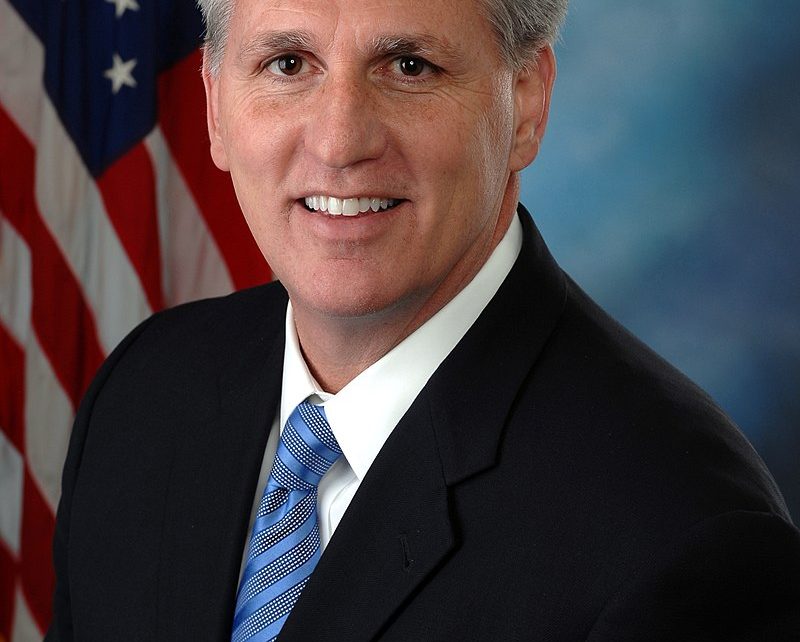
Exclusive California Globe Interview With Rep. Kevin McCarthy
Hot Cali topics: water, agriculture, water, High Speed Rail, water, trade, water, homeless, USMCA and water
By Katy Grimes, September 6, 2019 8:30 am
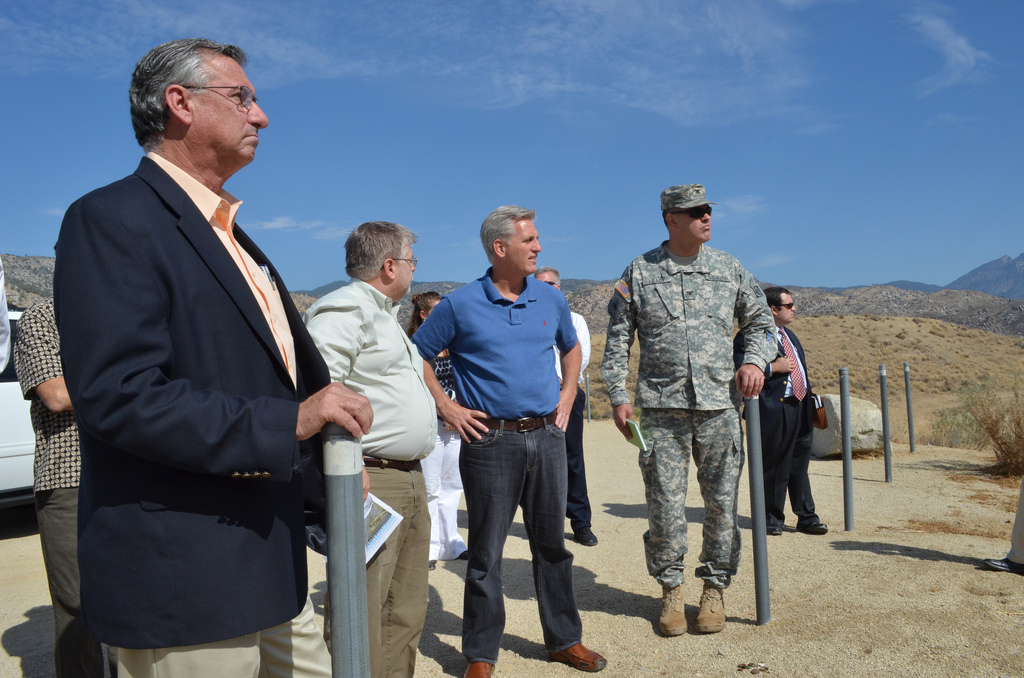
House Minority Leader Kevin McCarthy hails from Bakersfield, and has long advocated for the agriculture-rich region. Unsurprisingly, he has also repeatedly said that California needs water projects instead of High-Speed Rail.
Earlier this year, Congressman McCarthy, who represents most of Kern, Tulare and Northeast Los Angeles Counties, introduced legislation to repurpose funding for California’s “boondoggle” High Speed Rail project into water infrastructure for the state.
H.R. 1600, the Repurposing Assets to Increase Long-term Water Availability and Yield Act, known by its ironic acronym as the RAILWAY Act, would use any money the Trump administration pulls from the California High-Speed Rail Authority to fund long term water storage projects in California.
“The RAILWAY Act would end the Federal government’s involvement in this failed endeavor by repurposing up to $3.5 billion in recovered Federal funding for the California High-Speed Speed Rail project to water storage infrastructure projects as outlined in the bipartisan WIIN Act,’ McCarthy said in March. “Under the WIIN Act, five storage projects in California are advancing, and when completed, could provide 5 million acre-feet of additional water storage in our state. This is a far better use of taxpayer money that can address more important needs in our state.”
Food, Water, Agriculture
In an interview with California Globe, McCarthy discussed a recent meeting with area farmers and the United States Department of Agriculture Deputy Secretary Stephen Censky. McCarthy explained that he hosts this meeting annually for local farmers and ranchers to discuss issues and concerns with USDA officials, and to share ideas and solutions to the most pressing matters affecting their industry.
This led to discussion of the USMCA, the United States-Mexico-Canada Agreement, which McCarthy says Speaker Nancy Pelosi should make a top priority of, and get it ratified as soon as Congress returns from the August Recess.
In late 2018, President Donald Trump announced he would rapidly withdraw the United States from the North American Free Trade Agreement (NAFTA), saying it was the worst trade deal ever made. The USMCA is the replacement, which McCarthy says will fuel the economy and support the manufacturing and agricultural industries. As for California, McCarthy said it would greatly expand the state’s farmers’ exports of dairy and poultry into Canada, provide opportunity to trade fruits and vegetables, and be a boon for Napa Valley and the entire California wine industry.
“We have 124,000 agriculture producers in this state, totaling a $28 billion industry,” McCarthy said. “Mexico already ratified the agreement; we’re just waiting for Congress to act.”
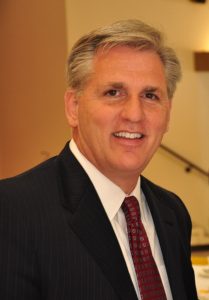
“This is just common sense,” he added. Although he noted, that this is a very difficult time for Speaker Pelosi, as she’s not really in charge because of “The Squad” of freshman Congresswomen Rashida Tlaib (D-MI), Ilhan Omar (D-MN), and Alexandria Ocasio-Cortez (D-NY) and Ayanna Pressley (D- MA). “I think they are the wave of the Democratic Party,” said McCarthy, while in Israel in August.
Of the 124,000 farmers and ranchers in California, McCarthy’s home of Kern County is the top agriculture crop producing county in the state.
The discussion naturally led to water in California and the historical battle. McCarthy said that it’s really sad how so many in the state are focused on desalination as a solution because “the State Water Project picks fish first over people.”
The winter of 2019 brought 200 percent of average rains and snowpack. Yet the state is still holding back on water to farmers, and residents will be rationed starting next year.
Water exported from the Sacramento-San Joaquin River Delta via the Central Valley Project and State Water Project provides millions of Californians with life-giving water and irrigates hundreds of thousands of acres of farmland. The CVP is a federal water project, while the SWP is a California water project.
President Trump issued a memorandum directing the Department of the Interior to modernize California water operations for the 21st century. It has been a decade since the regulations governing water management in California have been updated, including how much water from the Delta goes to communities in the Central Valley.
McCarthy supports this necessary updating. “I want to commend the Bureau of Reclamation for issuing this new assessment, which is an important step in the process of updating these regulations to match current conditions,” McCarthy said earlier this year. “I believe that using the best information that reflects the most current science and technology will ultimately result in a win-win, both for the environment and increasing water supplies to our communities.”
California’s Homeless Explosion
This week, McCarthy held a community resource forum to discuss ways to reduce homelessness in his own community and throughout the state of California. McCarthy said he applauds how San Diego Mayor Kevin Faulkner has correctly handled homelessness, and the issues that come with it in his city.
While once-eradicated medieval diseases are making a comeback, brought about by thousands of homeless persons living on the streets in Los Angeles, San Francisco and Sacramento, in San Diego homelessness has decreased by at least six percent, as has the garbage and filth and diseases.
Mayor Faulkner established bridge shelters with help and wraparound services, as well as storage centers for the belongings of the homeless. McCarthy said this is helping to clean up the San Diego streets and sidewalks, and should be replicated.
“The only way to solve this problem is to bring everyone together. The number one thing that we found in how to deal with this is that you have to have facilities for treatment,” McCarthy said at his forum.
He added that the medieval diseases in Los Angeles, and smartphone defecation apps in San Francisco, are in cities run by Democratic politicians. Los Angeles and San Francisco are already unaffordable, McCarthy said, and these politicians are making them worse.
- Sacramento Taxpayers Pay for Mobile Veterinary Clinic for Homeless Drug Addicts’ Pets - July 26, 2025
- Ninth Circuit Kills California’s Ammo Background Check Law: Here is the Decision – and the Dissent - July 25, 2025
- What it Costs to Buy a House in America: California’s Median Price is $790,000! - July 24, 2025



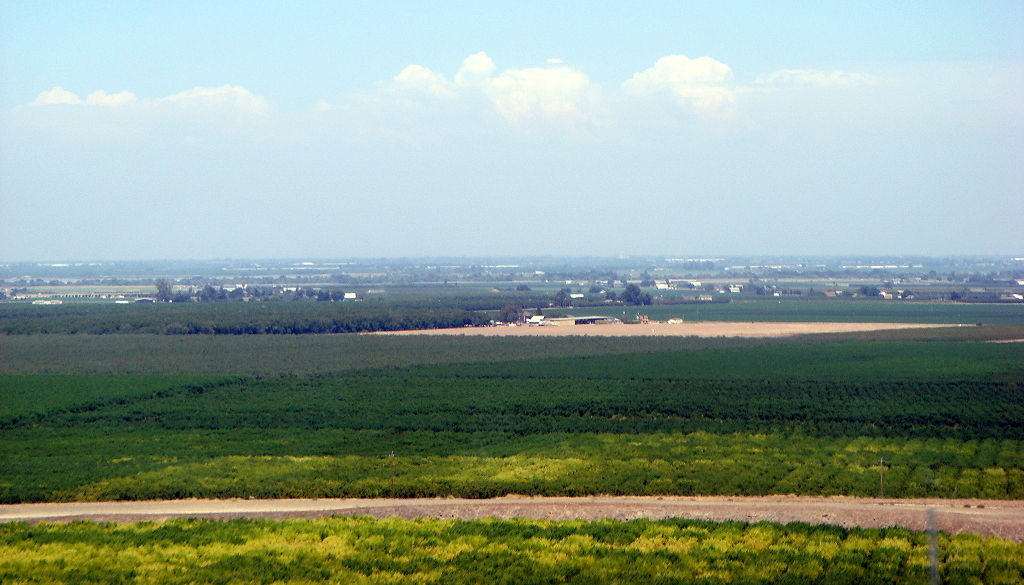
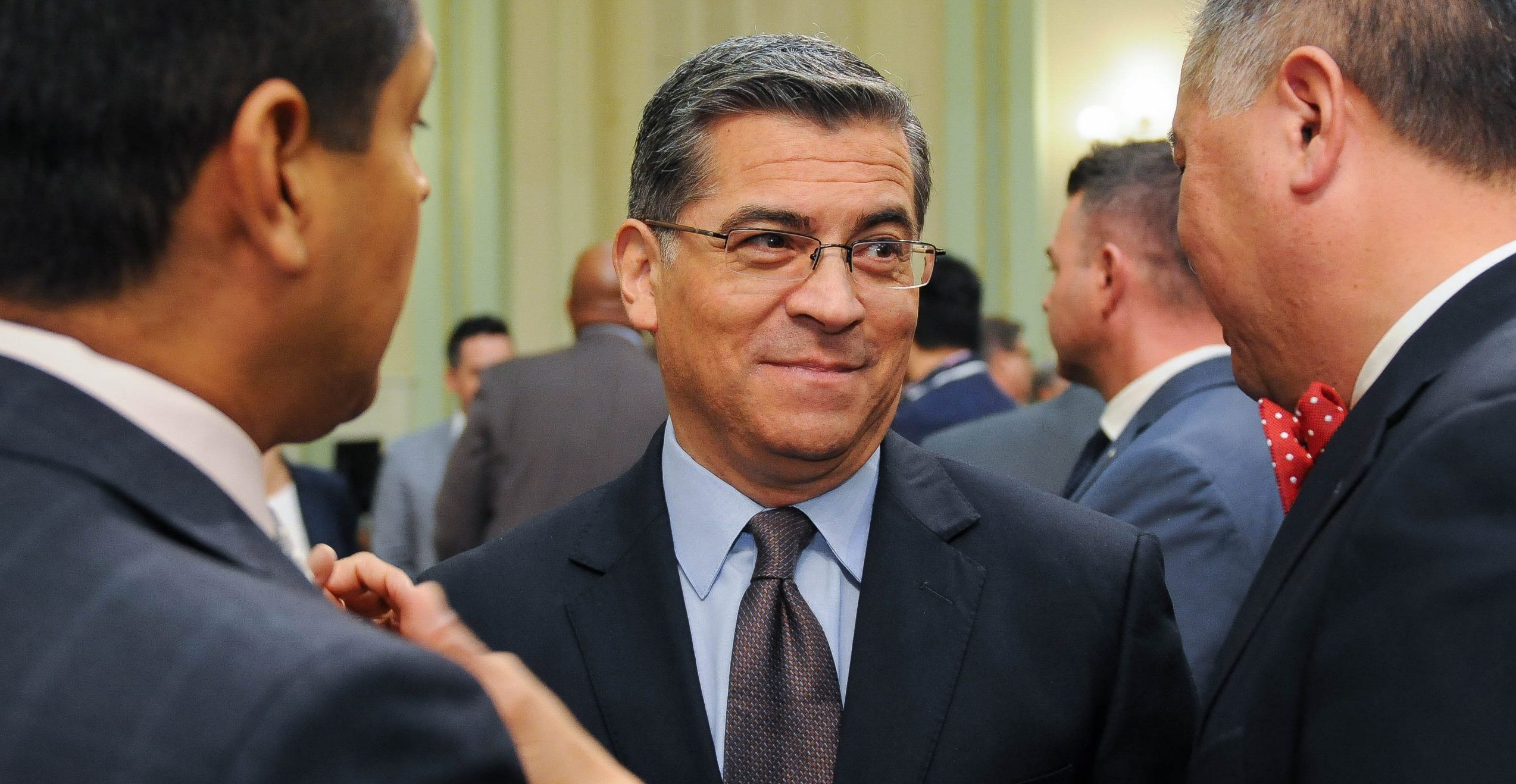



Sigh.
Random Thoughts:
-I’m always suspicious of laws (or anything) with names ginned up around tortured acronyms. It usually signals a fraudulent intent or ulterior motive. (Think the PATRIOT Act. here.) Perhaps I’m too cynical, but why is this one any different? So what does this guy want really?
-The SNCF offered to build the high speed rail for something like 35 Billion, straight up the I-5 – a natural corridor – *and to run it at a profit*. Perhaps it’s time to open talks with them again.
-If this thing is ever built – I actually line the concept but not the execution BTW – it will only be minus the stalling environmental and prevailing wage lawsuits. (Laying track is relatively cheap otherwise.) Meaning, in other words, the final rail line would soon be screaming up the West side of the SF Bay and all the way to downtown SF – a natural terminus. And if the otherwise virtue signaling and environmentally pious high speed rail boosters in Palo Alto, San Jose, et al don’t like it, don’t actually want it to go through *their* towns, all in a fit of pearl-clutching, vaporous and collective NIMBY shock and horror, then too bad.
-If the Chinese had been given the job of building this damned thing, then it would have been built and running already.
-Now there’s a thought: Let the Chinese build it. (But then again, they’re probably too canny to want even to get involved.)
-Still though, It would still be considered a common carrier, a form of Public Transportation, and as anybody who has ever taken public *anything* knows, the problem with Public Transportation is that it is indeed “Public,” meaning that you have to contend with various drunks, druggies, loonies and various, sundry “inner city types” who do know how to or care to be behave in public. That highlights that in contrast that none of these behaviours are something that you have to tolerate in your personal vehicle. You simply don’t allow them to get in, or kick their ass out at the nearest intersection. (How Rasis is that?!)
Just a thought. (Or several.)
VicB3
^^^
Exactly why “public” transportation is DOA in today’s culture….
Civility and coourteous behavior is difficult to find these days and who wants to put up with that crap, or worse, safety risks from mentally unstable individuals, who should be institutionalized, for their and public safety.